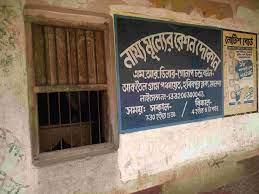West Bengal: More than 1 Crore 14 lakh Ration Cards ‘Deactivated’ Over Past 8 Months

Image for representational purpose. Credit: Government of West Bengal
Kolkata: Nearly 1 crore 14 lakh ration cards have been deactivated in West Bengal over the past eight months according to the sources in the government – leaving the PDS network in the state in a shaky state.
There seem to be two reasons behind these massive deactivations. First, the verification of the thumb impression in the biometric system seems to have been failing in the point of sale machine – commonly known as e-POS. Secondly, following the linkage of the Aadhaar of the users with their ration cards, it has become impossible to have multiple ration cards under one name.
According to the sources from the state rationing department, many true consumers of the rationing system are also finding it difficult to get their thumb impressions matched.
Biswambhar Basu of the Joint Forum of West Bengal Ration Dealers told NewsClick: “Every entry is biometrically judged in the e-POS machine. In many cases, they do not match. If the thumb impression does not match, then an OTP is received on the mobile phone of the consumer. Many dealers are being forced to give ration based on the OTP. But the rationing department wants to take away that option as well.”
He added, “Leaving aside the cards not surrendered after death and the married women who changed their house addresses, over one crore genuine consumers are being harassed every day and are not getting the ration. Most daily wage earners do menial jobs and as a result, their thumb impressions may not match. Many have their mobile numbers different from the ones that they might have linked with Aadhaar. The Supreme Court has ordered that no genuine ration card holders should return empty-handed from the ration shops but if any ration shop owner gives ration in such genuine cases, they have to face mental harassment and a fine.”
“The situation is pathetic in West Bengal and we are not able to serve the poor populace of the state whom the PDS system is meant for,” said Basu.
Wheat scarcity in the state
Due to an insufficient supply of wheat to West Bengal from the Centre, the quota of wheat per consumer will be decreased and instead, rice will be given. According to the National Food Security Mission, over six crore PDS consumers in the state need a monthly allocation of 60,000 tonnes of wheat. Now against this estimate, an equal quantity of rice is being arranged by the state food department.
Sources from the food department told NewsClick that the state government will try to buy directly from the farmers the requisite amount of paddy. Apart from this, paddy will also be procured through tenders in the open market through its arm named Essential Commodity Supply Corporation.
As rice costs more than wheat, this move entails more expense on the part of the state exchequer. According to sources, at one point, the state government used to source 1 lakh 10 thousand tonnes of wheat from the open market which has now come down to 82,000 tonnes. The reduced number of ration cards has been able to effect this decrease.
Under the state-level Rajya Khadya Suraksha Yojana, the RSKY type -1 cards are entitled to three kilograms of wheat and two kilograms of rice. Recently, the government said in a notification that the cardholders will get instead five kilograms of rice now via the PDS system.
In the same manner, for the RKSY 2 ration card, instead of one kilogram of rice and one kilogram of wheat, two kilograms of rice have been allotted. The portion of rice has been increased in other categories of ration cards also, including AAY (Annapurna Antodya Yojna), SPHH (special priority households) and PHH (priority households).
Get the latest reports & analysis with people's perspective on Protests, movements & deep analytical videos, discussions of the current affairs in your Telegram app. Subscribe to NewsClick's Telegram channel & get Real-Time updates on stories, as they get published on our website.
























